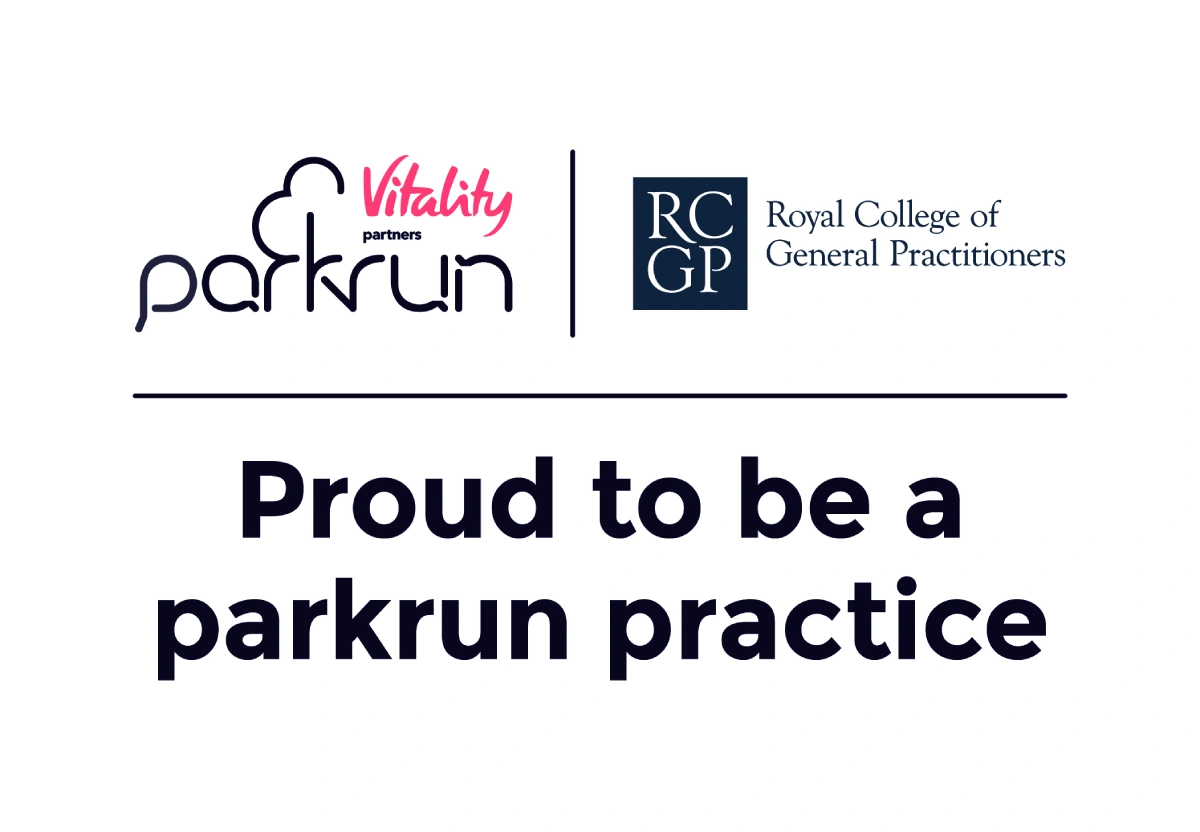We use cookies to help provide you with the best possible online experience.
By using this site, you agree that we may store and access cookies on your device. Cookie policy.
Cookie settings.
Functional Cookies
Functional Cookies are enabled by default at all times so that we can save your preferences for cookie settings and ensure site works and delivers best experience.
3rd Party Cookies
This website uses Google Analytics to collect anonymous information such as the number of visitors to the site, and the most popular pages.
Keeping this cookie enabled helps us to improve our website.
Patient Participation Group Newsletter: January 2024
Welcome to our First Newsletter of 2024
We hope you find something useful and of interest. We focus on senses in this issue, looking at sight, hearing, touch and balance.
As the PPG we are the patients’ voice, and we aim to represent the people who are registered as patients with WMP. If you are a patient of Whitstable Medical Practice, we would love to hear from you.
We asked new members why they joined?
What attracted you to the PPG?
- I have retired recently and was looking for a voluntary activity, which would give something back to my community; my previous experience and background would be relevant
- I thought what a good idea!
What keeps you coming?
- The committee is motivated to help the practice
- We are making headway with projects
- Being part of a team and making new friends
What suggestions do you have for the future?
- Outside speakers to improve my knowledge of local health issues
- Produce a chart showing the process from first contact through to treatment.
How do you feel about being a member of the PPG?
- I feel enthusiastic, I felt welcomed, and feel privileged to be involved
- It’s good to be doing something practical
- I enjoy listening to other people’s points of view, however not too much discussion as we need to make decisions!
What projects would you like to focus on?
- How to engage with the local community about the practice and feedback people’s views
- Liaise with local community figures to raise the work of the PPG.
- Matching our newsletter to national campaigns
Find out more about joining us and apply online
Exciting new NHS eye services at Whitstable Medical Practice!
Three new services at Estuary View provide comprehensive and specialised eye care.
Consultant-led General Ophthalmology Clinic
Under the guidance of experienced ophthalmologists, this clinic will address a range of eye health concerns. From routine eye examination to diagnosing and managing complex conditions, this service ensures that your eyes receive the attention they deserve. Whether you want advice on corrective lenses or need specialised treatment, our experts can provide personalised care and guidance.
Oculoplastic Surgery
We understand the significance of maintaining the functionality of your eyes. Our new Oculoplastic Surgery service offers surgery that can enhance the appearance and function of your eyelids and surrounding areas. Led by oculoplastic surgeons, this service covers procedures including eyelid surgery, tear duct repairs, and treatment for eyelid malposition (problems with eyelids). Our goal is to improve your eye health and help you feel more confident and comfortable.
Optometrist Led Minor Eye Conditions Service (MECS)
Eyes can experience minor discomfort and conditions that may not need immediate medical attention but still deserve professional care. This service gives access to expert assessment and treatment for issues such as conjunctivitis, dry eyes, and foreign body removal, offering relief and guidance to keep your eyes healthy and comfortable.
If you have any questions or would like an appointment for any of these new services, contact the practice.
Age-related Macular Degeneration
Age-related macular degeneration (AMD) is the leading cause of blindness/sight loss in the developed world.
In the UK some 500,000 people are affected, with about half registered as visually impaired.
There are many forms of AMD, including a genetic condition which affects young people. A booklet on this - Juvenile Macular Dystrophies – available from the Macular Society.
When macular degeneration appears in later life it is called age-related macular degeneration. It usually appears after the age of 60 but can happen earlier.
The older we are, the greater our risk. Around 1 in 2000 people over the age of 60 develop AMD; by the age of 90 it is 1 in 5. As we are living longer, more people are affected by AMD.
There are two forms of AMD, ‘wet’ and ‘dry’
Dry AMD is a gradual deterioration in the macula as the retinal cells die and are not renewed. Sight loss develops slowly over many months or years. As yet there is no treatment,
In wet AMD, abnormal blood vessels grow into the macula. These leak blood /fluid which causes scarring and rapid loss of central vision. Wet AMD can present very quickly. If diagnosed quickly, it can now be treated. Fast referral to a specialist is important.
Around 10-15 per cent of people with dry AMD can develop wet AMD. One or both eyes can be affected.
Hear hear?
Hearing loss affects 12 million people in the UK. It often happens gradually.
You might not notice it at first, says RNID (Royal National Institute for the Deaf). But there are some common signs to look out for:
- turning the TV up louder than your family wants it
- struggling to hear on the phone
- often asking people to repeat what they say
- feeling that other people mumble.
- finding it hard to follow conversation in pubs and restaurants
- having your partner complain that you don’t listen to them
If you think you may have some hearing loss you should visit your GP as soon as possible. A build-up of wax can sometimes cause a hearing problem. You can ask WMP to check this.
Your GP may refer you to an audiologist to find out the cause of your hearing loss and work with you to find the best possible treatment Whitstable Medical Practice offers an Audiology Service which is accessible to any patient registered within East Kent aged 16 and over.
There is useful information on the RNID website, which also has an online hearing check
Getting under the skin of Raynaud’s Phenomenon
Most of us wouldn’t think of our skin as one of the body’s organs – but, in fact, it’s the largest organ. It provides a barrier to infection and healthy skin enables us to react to cold and heat, and lets us know when we are in contact with something.
When we develop Raynaud’s the blood stops flowing properly to our fingers and toes. Especially when cold, stressed or anxious, our fingers or toes may change colour. The symptoms can last a few minutes to a few hours. It is common and does not usually cause severe problems.
We can often treat the symptoms by keeping warm. Sometimes it can be a sign of a more serious condition. Other symptoms can include:
- pain;
- numbness;
- pins and needles.
We can help ourselves by:
- keeping our home warm
- wearing warm clothes during cold weather, especially on our hands and feet
- trying to avoid sudden changes in temperature
- exercising regularly – this helps improve circulation
- doing breathing exercises or yoga to aid relaxation
- eating a healthy, balanced diet
- not smoking – improve your circulation by quitting smoking
- avoiding too much caffeine (found in tea, coffee, cola and chocolate) – it may trigger the symptoms of Raynaud's
Prostate Cancer – what are the risks?
Question: What do Ian McKellan, Alex Wheatlee, Stephen Fry and Ben Stiller have in common? Answer: Prostate Cancer
One in 8 men will be told they have prostate cancer in their lifetime, that’s more than 52,500 men each year.
It is important that every man knows his risk, a quiz lasting 30 seconds can be found at: Prostate Cancer UK - Risk Checker
Like all cancers, symptoms can be vague, but needing to pee more often or changes in the way you pee can be a warning sign see below for more information
Learn more about the symptoms of Prostate Cancer
How is prostate cancer identified?
The first test is the PSA (Prostate Specific Antigen) it is not 100% accurate. But it is the best first test we have.
Take the test on the Prostate Cancer UK website
There is no national screening programme for this cancer, so if you or a loved one is experiencing changes in the way he is passing urine, consider seeing your doctor. Prostate Cancer UK has a free phone number if you would like to discuss your problems with someone other than your GP: 0800 074 8383.
If you need further information, especially about your choices re surgery, then visit: the Cancer Research UK Website
Big win for Hypertension Heroes
PPG volunteers and two GP’s from Whitstable Medical Practice lined up at a Whitstable Town FC’s home game to offer blood pressure checks to supporters.
We set up our gazebo, arranged a table and chairs and set up our blood pressure monitors. Our PPG stewards approached the fans as they entered the stadium, offered our services, and handed out leaflets from the British Heart Foundation.
Dr Jillian Ofori, Dr Yee McArthur and PPG Chair Lynne Spencer measured blood pressures.
We saw 33 people, and a significant number of these people had high blood pressure. Everyone was given appropriate advice and information on follow-up treatment if needed. The doctors asked questions to see if urgent treatment was needed.
At least one patient was told to go to Estuary View on Monday morning to ask patient coordinators to arrange for a 24-hour blood pressure monitor.
Everyone who had their blood pressure measured was delighted that we were present. Some had been asked by their GP to have their blood pressure monitored, but they "had not got round to doing it”. One person was advised how to use the blood pressure machine in the surgery hub correctly.
We were pleased that some young people came forward for testing as hypertension can affect all age groups.
All being well, we will run another session with the football club in the Spring. Our thanks to everyone at WTFC who made this event possible
Right Place – Right Person – Right Time
Continuing our series on ‘A life in the day of…’ , here’s what one of our Patient Coordinators from Whitstable Harbour told us about her role.
What part of the job best helps you get up in the morning?
The people – and the prospect of helping and making a difference in people’s lives when they need support. Knowing the range of services that are available and helping to guide people to the right place or person for them.
I’ve sympathy for patients of all ages and hope to give reassurance and support. I’m a parent, so understand the anxiety if children are unwell. I’ve worried about older relatives, so know how important reassurance is when faced with new systems.
I give support by signposting the way to solutions. For example, if a patient says they are lonely and do not have any help at home, I can refer them to the social prescribing team which can offer support and put them in contact with agencies such as befriending services.
Are there any ways the PPG could help fellow patients understand your role? I feel interviews like this are really helpful and give patients more knowledge and understanding of the role of a patient coordinator.
Do you have special training for the Patient Coordinator role?
We have an in-depth induction and train with members of the team and managers, and online. Training is continual to make sure we keep up as the services grow.
What is the best aspect of the role?
Directing people to the right place, right person at the right time. For example, if a patient isn’t getting along with new medication, I can direct them to a clinical pharmacist who will be able to alter, change and give advice. This does not need to go to the GP.
What is the least pleasant aspect of the role?
When I can’t give a patient what they think they need and managing people’s expectations. The general change to tele calls from face to face appointments has been difficult. But that is getting better because people have had good experiences from being able to talk on the phone.
We can now also offer access to the Same Day Hub at Estuary View – for new conditions. We always give outline information – such as ‘urgent’ to the GPs when booking tele appointments.
How can patients be prepared when they are asking questions?
It’s the same for all of us – when we are hurried and worried we get frustrated – so writing a note that can be read out or referred to is a really good idea. There is a room that we can use for if someone wants to talk privately.
What aspects are definitely not in your remit to discuss?
We are not medically trained so we are unable to give any medical advice to patients.



